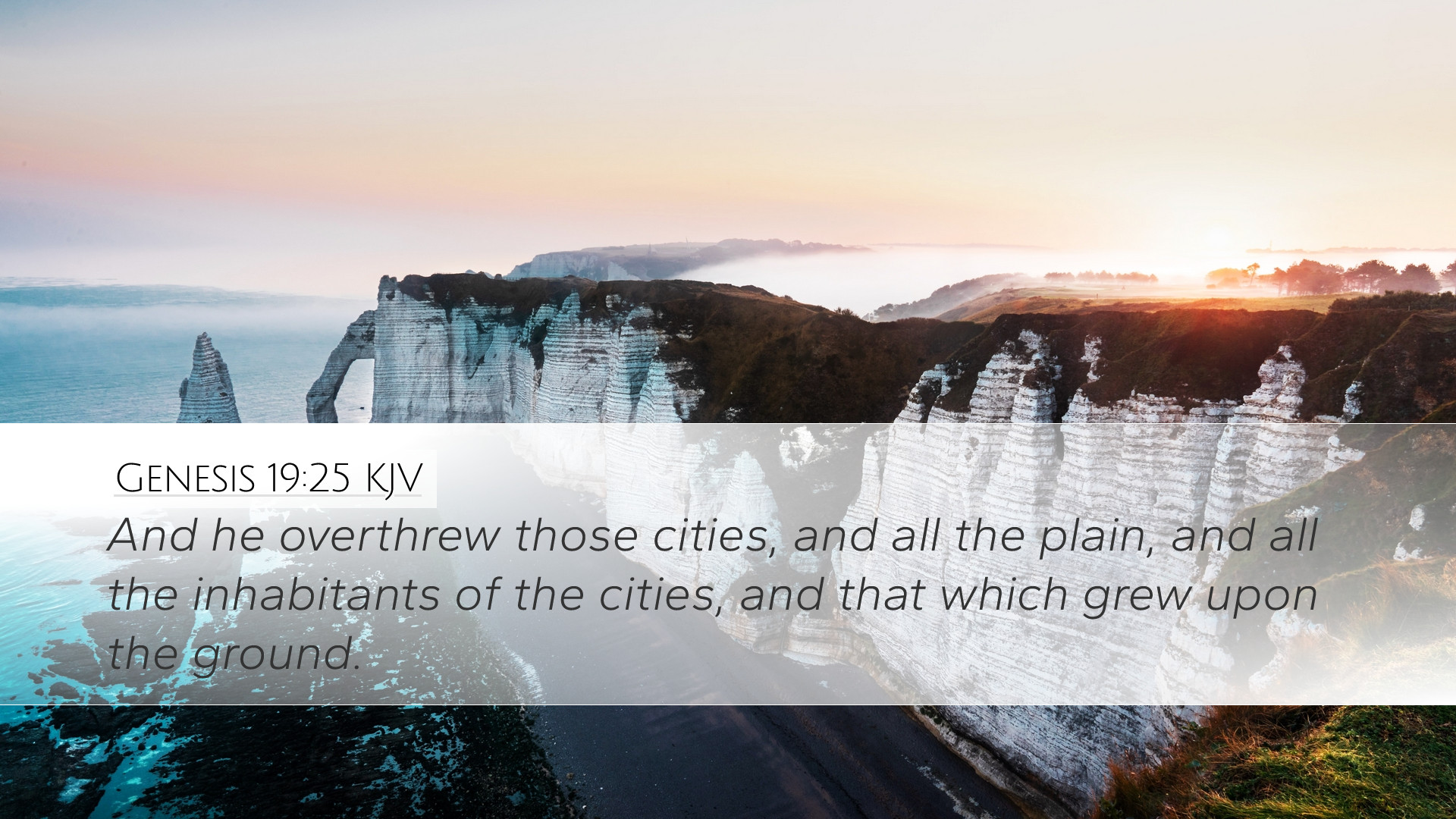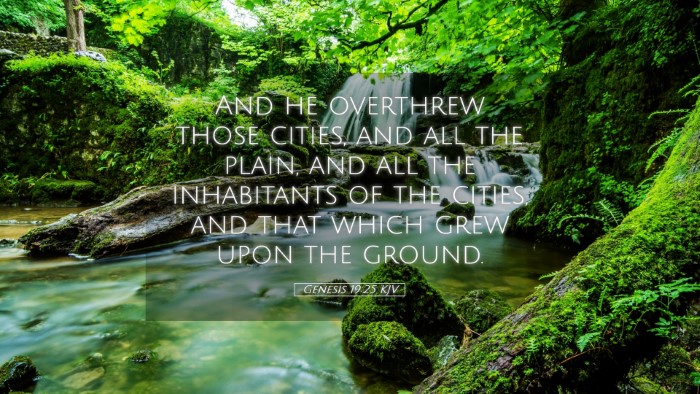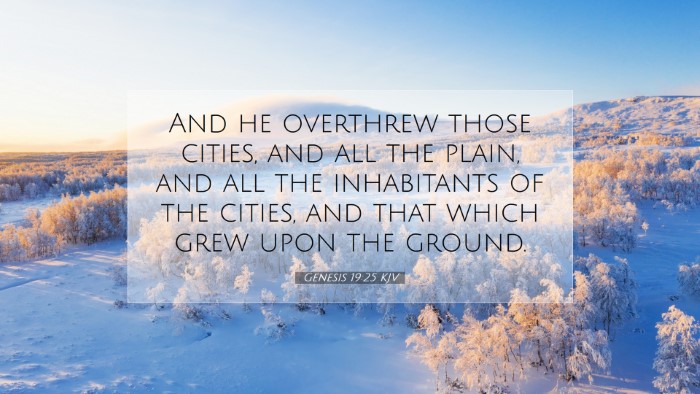Commentary on Genesis 19:25
Verse: "And he overthrew those cities, and all the plain, and all the inhabitants of the cities, and that which grew upon the ground." (Genesis 19:25)
This verse serves as a pivotal moment in the narrative of Sodom and Gomorrah, encapsulating God's judgment and the consequences of sin, serving as a profound lesson for various audiences, including pastors, students, theologians, and Bible scholars.
Contextual Overview
In the preceding chapters, we witness the escalating depravity of the cities of Sodom and Gomorrah. The pervasive immoral behavior of the inhabitants prompted divine intervention, and God, hearing the cries of the oppressed, decided to act. The context reveals a broader principle of divine justice that resonates throughout Scripture.
Theological Implications
-
Divine Judgment: The destruction of these cities illustrates God's holiness and His intolerance of sin. Albert Barnes notes that such catastrophic events demonstrate God's willingness to judge iniquity decisively.
-
Wrath and Mercy: While God’s judgment is evident, we also see the mercy extended to Lot and his family, reflecting a theme of salvation amidst destruction. Matthew Henry captures this duality, emphasizing that mercy often coexists with judgment.
-
Human Responsibility: The passage initiates a discussion on human choices and the consequences thereof. As Adam Clarke highlights, the inhabitants' choices led to their demise, showcasing the principle that individuals are accountable for their actions.
Insights from Commentators
Gathering insights from notable public domain commentaries provides depth to our understanding of this verse.
Matthew Henry
Henry underscores the severity of God's judgment, positing that the destruction of Sodom and Gomorrah serves as a historical lesson for future generations. He portrays the scene vividly, noting that "the smoke of the country went up as the smoke of a furnace" (Genesis 19:28), which indicates the totality of the devastation. Henry warns of the complacency towards sin that can provoke similar divine responses in future societies.
Albert Barnes
Barnes brings attention to the geographical and sociocultural implications of the destruction. He notes that the cities were "overthrown" due not only to their moral failings but also due to their rejection of God's authority. Barnes asserts that this narrative underscores the importance of thriving in righteousness within a corrupt environment, drawing parallels to the experience of believers today.
Adam Clarke
Clarke elaborates on the phrase "all the plain," emphasizing that the destruction was not limited to Sodom and Gomorrah but extended to the surrounding areas, indicating the far-reaching repercussions of sin. He interprets this as a divine warning illustrating that God's judgment can impact entire communities. Clarke particularly highlights the phrase "and that which grew upon the ground," stressing that creation itself suffers due to human sinfulness.
Practical Applications
-
Awareness of Sinfulness: Pastors and teachers should use this passage to address contemporary issues of morality, urging congregations to recognize the seriousness of sin in their lives and communities.
-
A Call to Righteousness: The lesson of Lot's deliverance amidst wrath serves as a reminder for believers to strive for holiness and to live distinctively in a corrupt world.
-
Hope in Judgment: This commentary invites leaders and scholars to provide hope, reminding believers that God is faithful to save those who seek refuge in Him, even in destructive times. Such hope encourages a life of faithfulness and resilience.
Conclusion
Genesis 19:25 acts as a foundational text demonstrating God's justice and mercy. The insights provided by Matthew Henry, Albert Barnes, and Adam Clarke encapsulate the enormity of divine judgment on sin while simultaneously underscoring God's desire for mercy toward the righteous. It calls for a reflection on the choices individuals make and encourages a proactive pursuit of righteousness. The implications of this verse are vast and should inspire deep contemplation among pastors, students, theologians, and scholars as they strive to apply these timeless truths in today's context.


